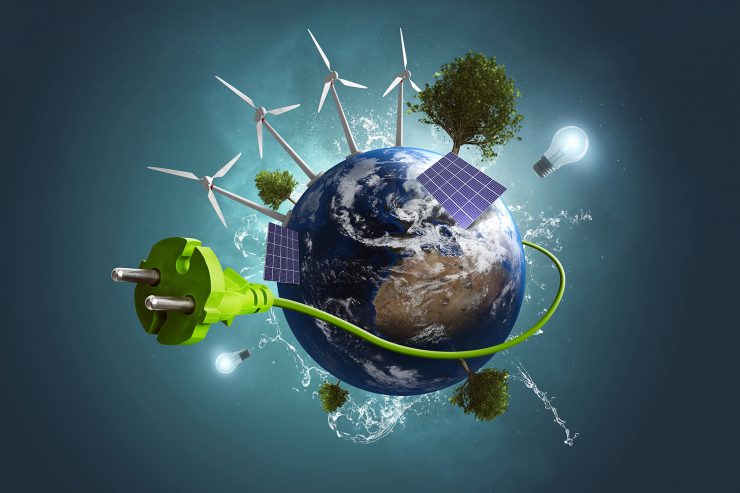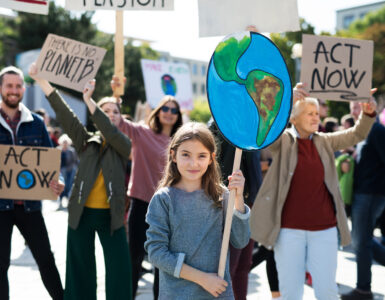The energy transition is the change we have to make from using mainly fossil fuels for our energy to using renewables to meet most if not all of our energy needs. A similar thing happened at the start of the industrial revolution when we switched to using coal to power almost everything. This transition to coal completely changed the world (and unfortunately ended up contributing a lot to climate change). The energy transition we need to make now has the possibility to once again change the world – this time for the better.
Why should we make the transition?
We need to make the energy transition to renewable energy to try and avoid the most severe impacts of climate change. The Paris Agreement which was adopted by 196 countries in 2015 sets the goal of keeping climate change to below 2 °C and hopefully below 1.5 °C. If we manage to do that it should mean the impacts are much easier to deal with.
There are lots of things we need to do in order to achieve goals of the Paris Agreement and the energy transition is a very important step.
How do we make the change?
Making the transition from fossil fuels to renewables won’t happen overnight. This is because we don’t have enough sources of renewable energy already in place to rely on them alone.
So to begin with we will have to keep fossil fuel energy generation at current levels, but to reduce the amount of carbon this releases into the atmosphere, carbon capture technology will need to be widely installed.
As more and more renewable energy becomes available we will be able to start reducing the amount of energy coming from fossil fuels, until eventually we switch almost entirely to renewable generation. This is not likely to happen until near the end of the century.
The challenges ahead.
- Money – Making the transition to renewables will be expensive, but not as expensive as doing nothing and dealing with the impacts of climate change.
- Jobs – Many jobs in the fossil fuel industry will not exist after the transition, it will be important to include plans to help people find jobs in the renewable sector.
- Space – Renewable energy processes need a lot more space than traditional power stations, wind and solar farms can cover large areas of land and sea while hydroelectric dams require large reservoirs of water. It will be important to carefully plan where new renewables are built to reduce the impact they have.
- Energy gaps – Renewables are affected by the weather a lot more than fossil fuels, if it is not sunny and windy then energy generation will be severely affected. To make sure there are no gaps between energy demand and supply, the existing energy network will need a major upgrade. This will include linking many more countries together, increasing the level of energy storage using batteries and other new technology, and making the energy system “smart” so that energy can be moved to where it is needed from where it is produced.
While there are some challenges that will arise, if we are able to complete the energy transition then as well as helping to keep climate change to within a safe level who knows what other benefits and changes it might lead to.
What benefits do you think the energy transition will bring?
While there are clearly some challenges to the energy transition it is widely agreed by both scientists and politicians that it is something that needs to be done in order to help avoid catastrophic climate change.












